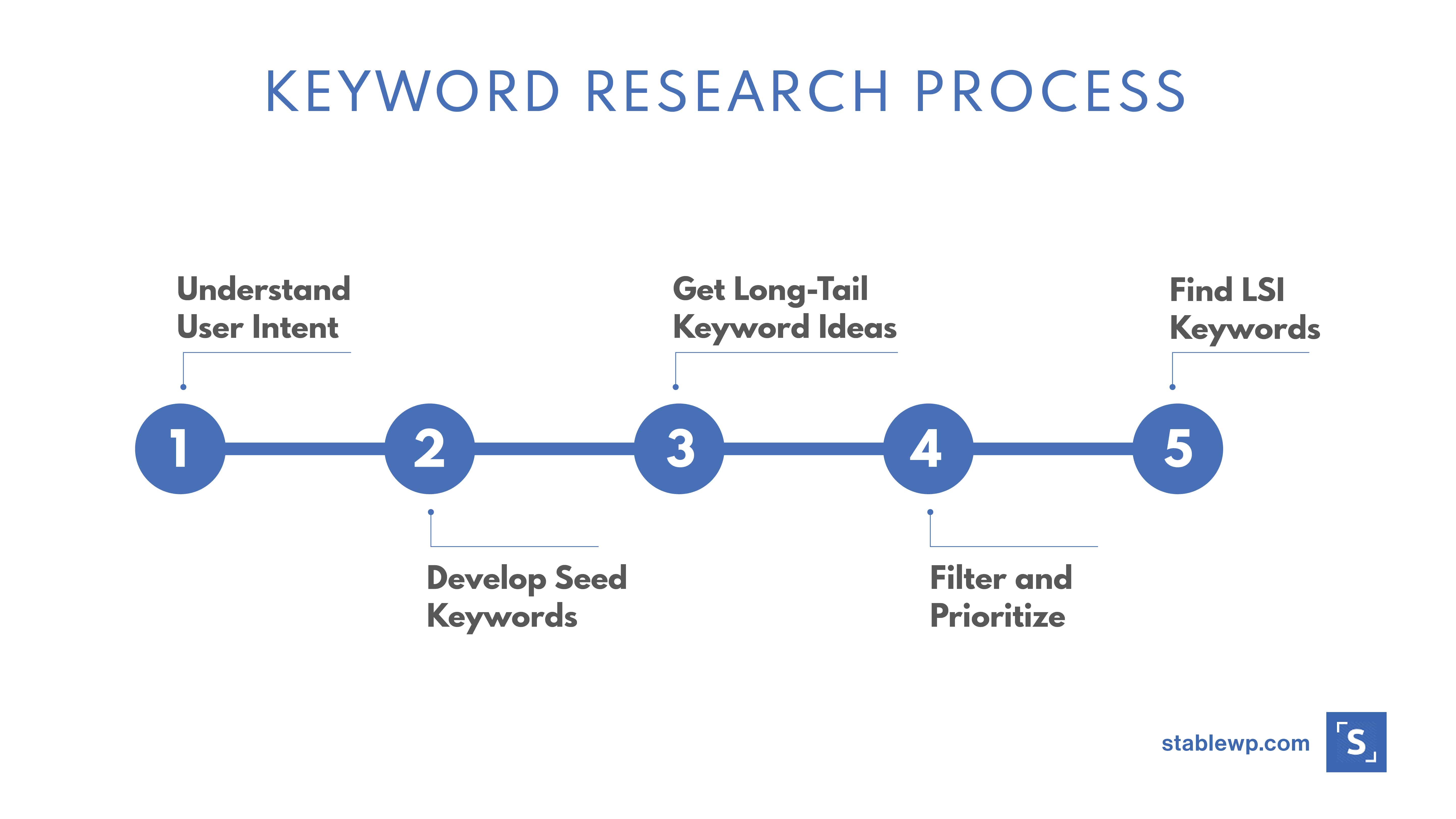4246 Insights
Your source for the latest news and information.
Keyword Research: The Secret to SEO Success
Unlock the secrets of SEO success! Discover powerful keyword research tips that will skyrocket your website's traffic.
Understanding Keyword Research: A Complete Guide to SEO Success
Understanding keyword research is the cornerstone of effective SEO strategies. It involves identifying the terms and phrases that potential customers are using to search for products or services similar to what you offer. The process not only helps in discovering relevant keywords but also enables you to assess their competition level and search volume. A well-defined keyword list allows you to create targeted content that answers your audience's queries, positioning your website as a reliable source of information. Begin by brainstorming relevant topics, then utilize tools such as Google Keyword Planner or SEMrush to expand your keyword list and access valuable data.
Once you have a solid list of keywords, it's crucial to categorize them based on search intent. This can be broken down into three main categories: informational, navigational, and transactional. For example, if someone searches for 'how to optimize my website for SEO,' they are likely looking for informational content. In contrast, a search for 'buy SEO services' indicates a transactional intent. By aligning your content with the right keywords and understanding the intentions behind them, you can significantly enhance your website's visibility and drive targeted traffic that converts into customers.

Top 10 Keyword Research Tools You Should Be Using
When it comes to optimizing your website for search engines, effective keyword research is crucial. Here are the Top 10 Keyword Research Tools that you should be using to enhance your SEO strategy:
- Google Keyword Planner: A free tool that helps you find keywords relevant to your business and gives insights on how often specific keywords are searched.
- Ahrefs Keywords Explorer: Known for its comprehensive database, Ahrefs provides keyword suggestions along with SEO metrics like keyword difficulty.
- SEMrush: This all-in-one tool not only aids in keyword research but also offers competitive analysis and site auditing.
- Ubersuggest: A user-friendly tool that offers keyword suggestions, ranking data, and competitive insights.
- Moz Keyword Explorer: Moz’s tool allows users to find keywords and offers metrics on organic CTR and priority scores.
- Keyword Tool: This tool offers keyword suggestions for various platforms including Google, YouTube, and Bing.
- AnswerThePublic: It generates a visual map of keyword ideas and common questions around specific topics.
- KWFinder: A simple yet powerful tool that provides a list of long-tail keywords along with their search volume.
- Soovle: An excellent tool for finding keyword ideas from various sources like Google, Wikipedia, and YouTube.
- SpyFu: This tool allows you to spy on competitors' keywords and PPC strategies.
How to Choose the Right Keywords for Your SEO Strategy
Choosing the right keywords for your SEO strategy is crucial for driving targeted traffic to your blog. Start by understanding your audience and the specific terms they use to search for information related to your niche. Utilize tools like Google Keyword Planner or Ubersuggest to discover high-volume keywords that have low competition. Create a list of potential keywords and categorize them based on search intent, such as informational, navigational, or transactional, to tailor your content accordingly.
Once you have your list, it's essential to prioritize your keywords. Consider implementing the following steps for an effective keyword selection:
- Relevance: Ensure that your keywords are directly related to your blog's content.
- Search Volume: Target keywords that have a considerable number of searches.
- Competition: Analyze the level of competition for each keyword using SEO tools.
- Long-tail keywords: Incorporate long-tail keywords to target specific queries.
By carefully selecting and optimizing for the right keywords, you'll enhance your SEO performance and attract a more engaged audience.